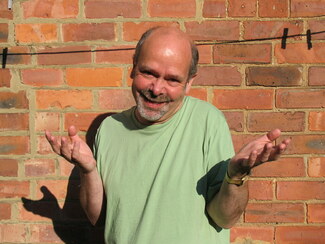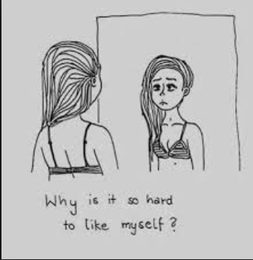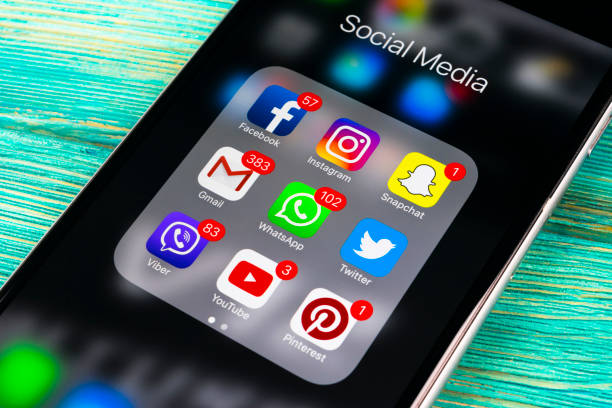does it really make sense to blame social media for pre-existing societal issues? Here's what gen- z has to say. -- Edrisina SKlar

Social media is a very common dinner table debate. In almost every family gathering I am a part of, someone brings it up. Most family discussions revolve around politics, social media, or both in tandem. The majority of the time, I don’t contribute much to the politics portion, because I feel like the conversation is preaching to the choir - I am lucky in that the political views in my family are liberal and undisputed,and for this reason I don’t usually see the point in discussing politics in this setting. The social media debate on the other hand, inspires much more controversy.
The different opinions on this subject are usually generational. People from about forty up generally see social media as the enemy - using it as a scapegoat for many societal issues, especially those more commonly linked to adolescents. A common notion is that the use of social media in teens is a cause of great insecurity. That young girls feel badly about their appearance because of the kind of standards presented on apps like Instagram, and that the decline in teenagers' mental health is due to media or interactions they may regularly be exposed to as a result of the use of social media - as well as holding it responsible for countless other issues.
When I am presented with this point of view,I start by acknowledging that on some level, what they are saying is entirely possible. It is true that there is no end of accounts featuring models with clear skin, a slim figure, shampoo ad. quality hair, etc. There is plenty of opportunity to compare ourselves to these internet creatures, and it is also true that habits such as these have a negative impact on mental health.
The different opinions on this subject are usually generational. People from about forty up generally see social media as the enemy - using it as a scapegoat for many societal issues, especially those more commonly linked to adolescents. A common notion is that the use of social media in teens is a cause of great insecurity. That young girls feel badly about their appearance because of the kind of standards presented on apps like Instagram, and that the decline in teenagers' mental health is due to media or interactions they may regularly be exposed to as a result of the use of social media - as well as holding it responsible for countless other issues.
When I am presented with this point of view,I start by acknowledging that on some level, what they are saying is entirely possible. It is true that there is no end of accounts featuring models with clear skin, a slim figure, shampoo ad. quality hair, etc. There is plenty of opportunity to compare ourselves to these internet creatures, and it is also true that habits such as these have a negative impact on mental health.

However, these images and standards are still more than accessible without the use of Social Media. They are everywhere you look- movies, magazines, billboards, the sides of buses, even the covers of books. It’s no secret that women have been pressured to meet nearly unachievable beauty standards for centuries, regardless of whether or not they use social media.
We have to stop using social media as a scapegoat for pre-existing issues within our society. While it is true that it doesn’t always help to stop problems in our society, it definitely doesn’t create them either. Generations that haven’t grown up with social media aren’t considering that the effect that it has on the individual depends very much on how they use it. There is this kind of myth that if you use social media you will be exposed to damaging content, when in truth, the user makes active choices what they see on their page. Only you choose who/what you follow. Social media can be used positively.
Most people that I know who have social media use it to feel connected to the world around them, along with causes they support. “Young people want their opinions to be heard. Many tweens and teens find their online communities are engaging, interactive and responsive.” (Washington Post) If one is constantly discerning what content is detrimental for them and what is productive, than one can maintain a harmonious relationship with social media. We need to focus less on teaching youth not to use social media and more on teaching them how to use it.
On that note,I interviewed a few young people about this topic, and here is what they told me:
Etta,16
I think that on the one hand social media has been really great for getting more people’s voices out there in a more ubiquitous way- like people who typically control the media no longer control the media because everyone controls the media now -because of social media..um..but some parts of that lead to good things and some parts of that lead to not so good things.”
Sadie,15
Rabiah,16
We have to stop using social media as a scapegoat for pre-existing issues within our society. While it is true that it doesn’t always help to stop problems in our society, it definitely doesn’t create them either. Generations that haven’t grown up with social media aren’t considering that the effect that it has on the individual depends very much on how they use it. There is this kind of myth that if you use social media you will be exposed to damaging content, when in truth, the user makes active choices what they see on their page. Only you choose who/what you follow. Social media can be used positively.
Most people that I know who have social media use it to feel connected to the world around them, along with causes they support. “Young people want their opinions to be heard. Many tweens and teens find their online communities are engaging, interactive and responsive.” (Washington Post) If one is constantly discerning what content is detrimental for them and what is productive, than one can maintain a harmonious relationship with social media. We need to focus less on teaching youth not to use social media and more on teaching them how to use it.
On that note,I interviewed a few young people about this topic, and here is what they told me:
Etta,16
- “Do you think that as a whole, social media is damaging to our society?”
I think that on the one hand social media has been really great for getting more people’s voices out there in a more ubiquitous way- like people who typically control the media no longer control the media because everyone controls the media now -because of social media..um..but some parts of that lead to good things and some parts of that lead to not so good things.”
- What social media platforms do you use?
- “What would you say that you use social media for?”
- “I think I use it mostly to socialize, and keep in contact with people who I don’t see everyday- cause a lot of my friends go to other schools but also for like entertainment purposes because people put dumb shit on instagram and snapchat and I like to watch it and be entertained.”
- “Do you feel like any insecurity you may have comes from or is increased by the use of social media?”
- “A word of advice for younger teenagers just beginning to use it?”
Sadie,15
- “Do you think that as a whole, social media is damaging to our society?”
- What social media platforms do you use?
- “What would you say that you use social media for?”
- “Do you feel like any insecurity you may have comes from or is increased by the use of social media?”
- “A word of advice for younger teenagers just beginning to use it?”
Rabiah,16
- “Do you think that as a whole, social media is damaging to our society?”
- What social media platforms do you use?
- “What would you say that you use social media for?”
- “Do you feel like any insecurity you may have comes from or is increased by the use of social media?”
- “A word of advice for younger teenagers just beginning to use it?”


